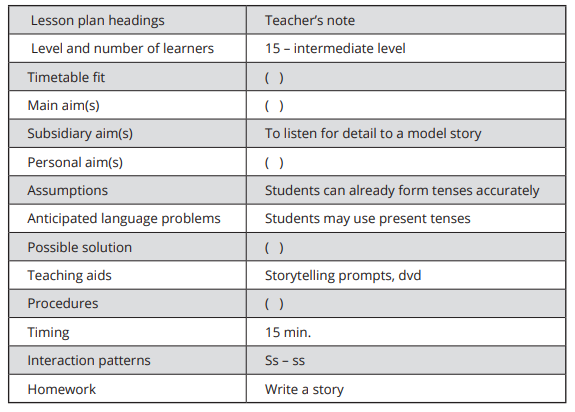Questões de Concurso
Comentadas para professor - letras
Foram encontradas 684 questões
Resolva questões gratuitamente!
Junte-se a mais de 4 milhões de concurseiros!
I. As disposições da Lei são aplicáveis, no que couber, àquele que, mesmo não sendo agente público, induza ou concorra dolosamente para a prática do ato de improbidade.
II. Se houver indícios de ato de improbidade, a autoridade que conhecer dos fatos representará ao Ministério Público competente, para as providências necessárias.
III. Na responsabilização da pessoa jurídica, deverão ser considerados os efeitos econômicos e sociais das sanções, de modo a viabilizar a manutenção de suas atividades.
Quais estão corretas?
Assinale a alternativa que preenche corretamente a lacuna do trecho acima.
I. A erradicação da pobreza é um objetivo fundamental da República Federativa do Brasil.
II. A solução pacífica dos conflitos é um princípio que rege as relações internacionais da República Federativa do Brasil.
III. A lei não excluirá da apreciação do Poder Judiciário lesão ou ameaça a direito.
Quais estão corretas?
Divórcio da Alma
Por Mario Corso

(Disponível em: gauchazh.clicrbs.com.br/colunistas/mario-corso/noticia/2023/01/divorcio-da-almacldkmtll20039014sa9scc5vb.html – texto adaptado especialmente para esta prova).
Divórcio da Alma
Por Mario Corso

(Disponível em: gauchazh.clicrbs.com.br/colunistas/mario-corso/noticia/2023/01/divorcio-da-almacldkmtll20039014sa9scc5vb.html – texto adaptado especialmente para esta prova).
Divórcio da Alma
Por Mario Corso

(Disponível em: gauchazh.clicrbs.com.br/colunistas/mario-corso/noticia/2023/01/divorcio-da-almacldkmtll20039014sa9scc5vb.html – texto adaptado especialmente para esta prova).
Divórcio da Alma
Por Mario Corso

(Disponível em: gauchazh.clicrbs.com.br/colunistas/mario-corso/noticia/2023/01/divorcio-da-almacldkmtll20039014sa9scc5vb.html – texto adaptado especialmente para esta prova).
(THORNBURY, 2005, p. 91-92)
Considering Thornbury’s (a very famous applied linguistics in the early 2000s) quotation, put the numbers 1 – 5 in the correct place in the following lesson plan:

1. To enable students to use past tenses accurately and put events in order in simple narratives.
2. Students listen to the model story, then, in groups, plan and write their own stories.
3. Use gestures to remind students to use past tenses.
4. To follow on from work on past tenses and to prepare for the storytelling project.
5. To make sure that board writing is clear and readable.
Choose the CORRECT sequence.
(SCRIVINER, 2003, p. 62)
Consider the definition above, choose the item that is a proposal for a communicative activity.
“Mistakes are often divided into errors and slips. Errors happen when learners try to say something that is beyond their current level of language processing. Usually, learners cannot correct errors themselves because they don’t understand what is wrong. Errors play a necessary and important part in language learning. Slips are the result of tiredness, worry or other temporary emotions or circumstances. These kinds of mistakes can be corrected by learners once they realize they have made them.”
(SPRATT; PULLVERNESS; WILLIAMS, 2005, p. 44)
Judge the items below as (T) True or (F) False.
1. There are two main reasons why learners make errors. The first reason is influence from the learner’s first language (L1) on the second language. This is called interference or transfer. Learners may use sound patterns, lexis or grammatical structures from their own language in English. The second reason is because they are unconsciously working out or organizing language, but this process is not yet complete. This kind of error is called a developmental error.
2. Errors in which learners wrongly apply a rule for one item of the language to another item are known as overgeneralization, and as a second language learners’ language ability increases, these kinds of errors also reduce.
3. Errors are part of learner’s interlanguage, which develops and progresses as they learn more. Experts think that interlanguage is an essential and unavoidable stage in language learning. In other words, interlanguage and errors are necessary to language learning.
4. Errors are a natural part of learning. They usually show that learners are learning and that their internal mental processes are working on experimenting with language.
5. Sometimes errors do not disappear, but get fossilized. These fossilized errors may be the result of lack of exposure to the second language and/or of a learner’s lack of motivation to improve their level of accuracy.
Choose the CORRECT sequence.
Read the following exchange between two people having breakfast together.
A – Coffee?
B – Please.
A – Milk? Sugar?
B – No milk. One sugar, thanks.
A – Toast?
B – No thanks.
A – Juice?
B – Mmm.
(Thornbury, 2005, p. 3)
After reading the dialogue, choose the item that DOES NOT describe a correct reflection about grammar.
Considering language and background to language learning and teaching, match the topic to its definition.
( 1 ) Grammar ( 2 ) Lexis ( 3 ) Phonology ( 4 ) Function
( ) is the study of the sound features used in a language to communicate meaning. ( ) is a reason why we communicate. ( ) describes how we combine, organize and change words and parts of words to make meaning. ( ) is individual words or sets of words that have a specific meaning.
Choose the item with the CORRECT sequence.